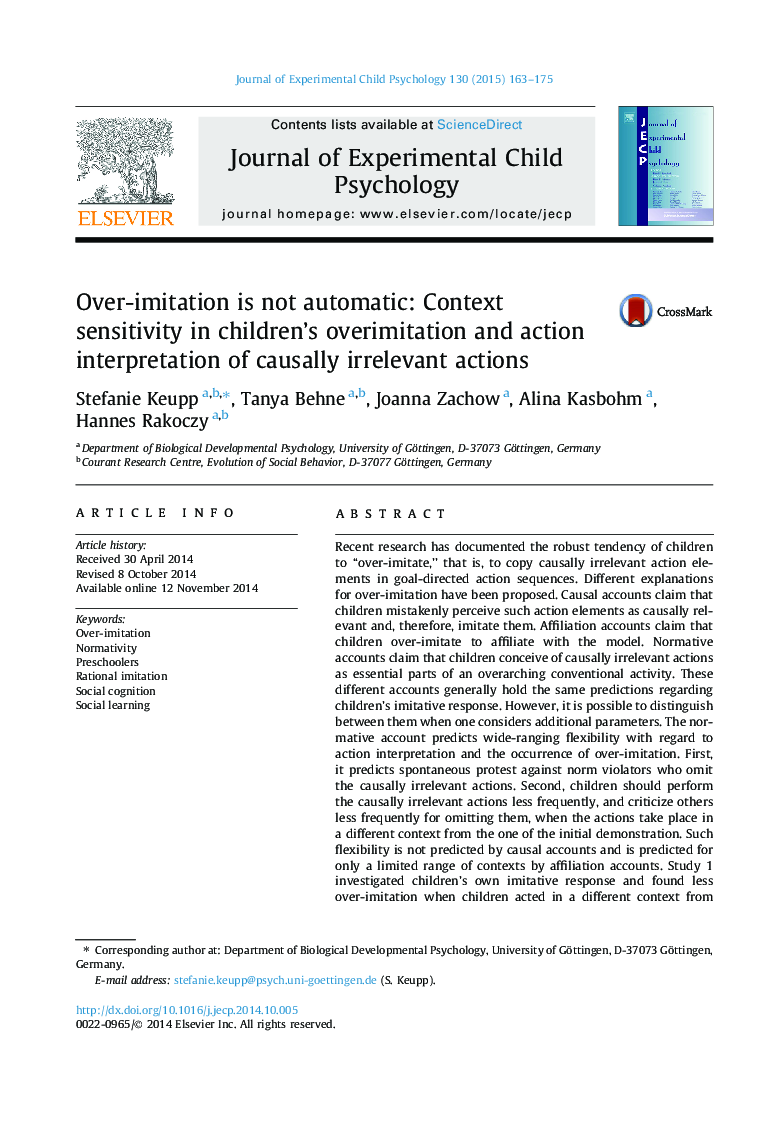| کد مقاله | کد نشریه | سال انتشار | مقاله انگلیسی | نسخه تمام متن |
|---|---|---|---|---|
| 918009 | 1473482 | 2015 | 13 صفحه PDF | دانلود رایگان |

• Children’s overimitation is context-sensitive and their action interpretation involves rational normative considerations.
• Rate of overimitation is lower in different-context condition.
• Children protest against omission of irrelevant actions more often in the same-context condition.
Recent research has documented the robust tendency of children to “over-imitate,” that is, to copy causally irrelevant action elements in goal-directed action sequences. Different explanations for over-imitation have been proposed. Causal accounts claim that children mistakenly perceive such action elements as causally relevant and, therefore, imitate them. Affiliation accounts claim that children over-imitate to affiliate with the model. Normative accounts claim that children conceive of causally irrelevant actions as essential parts of an overarching conventional activity. These different accounts generally hold the same predictions regarding children’s imitative response. However, it is possible to distinguish between them when one considers additional parameters. The normative account predicts wide-ranging flexibility with regard to action interpretation and the occurrence of over-imitation. First, it predicts spontaneous protest against norm violators who omit the causally irrelevant actions. Second, children should perform the causally irrelevant actions less frequently, and criticize others less frequently for omitting them, when the actions take place in a different context from the one of the initial demonstration. Such flexibility is not predicted by causal accounts and is predicted for only a limited range of contexts by affiliation accounts. Study 1 investigated children’s own imitative response and found less over-imitation when children acted in a different context from when they acted in the same context as the initial demonstration. In Study 2, children criticized a puppet less frequently for omitting irrelevant actions when the puppet acted in a different context. The results support the notion that over-imitation is not an automatic and inflexible phenomenon.
Journal: Journal of Experimental Child Psychology - Volume 130, February 2015, Pages 163–175